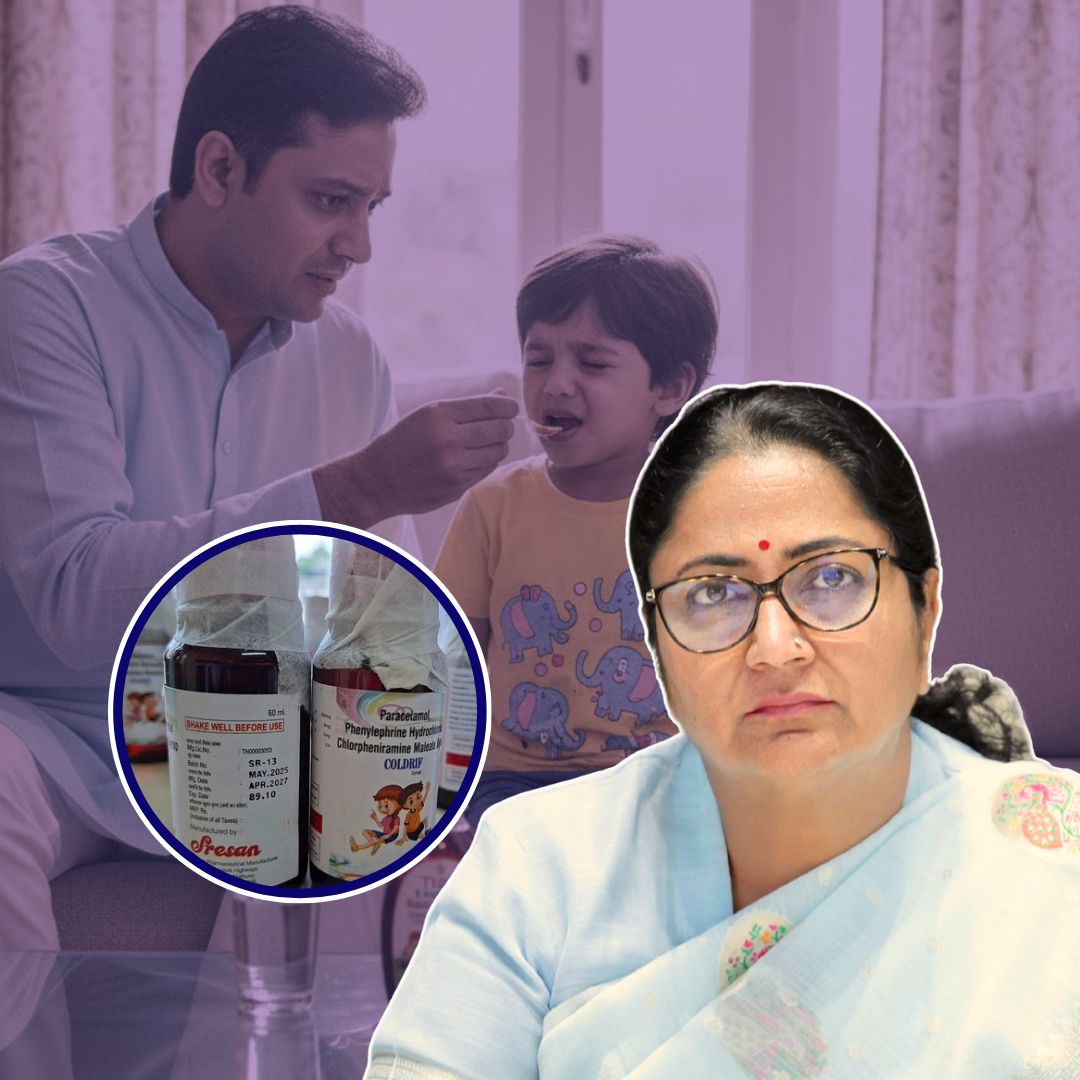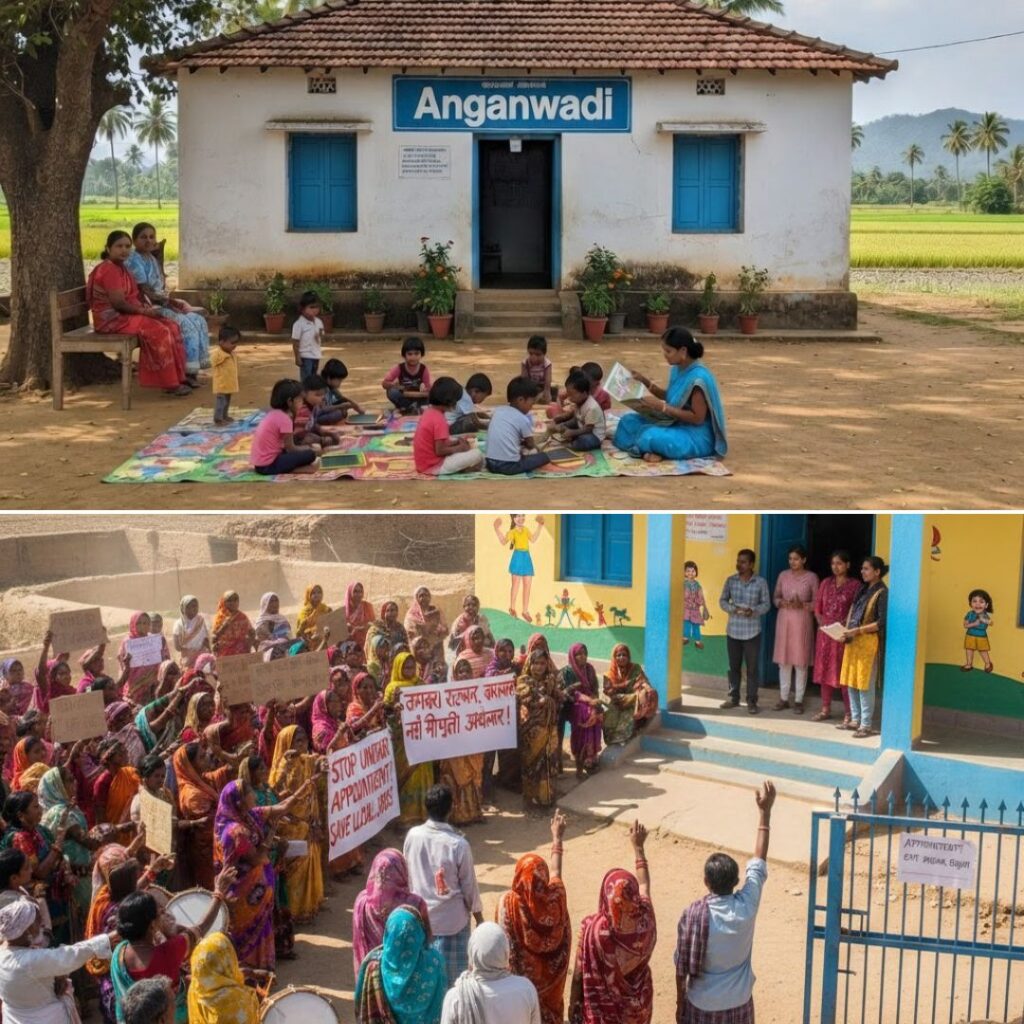The Delhi government’s Drugs Control Department has issued a public interest notice banning the sale and consumption of Coldrif Cough Syrup following the detection of a toxic adulterant, diethylene glycol (DEG), in its formulation. The notice, dated October 10, 2025, warns all stakeholders to immediately halt dealings with the product, urging the general public to abstain from using it. The detection of 46.28% DEG, a harmful industrial chemical used in antifreeze and paint removers, in the syrup has soundly declared it “Not of Standard Quality,” posing serious health risks, especially to children.
Health officials emphasise that Coldrif has never been distributed in Delhi; however, as a precaution, rigorous testing of all cough syrups in the territory is underway. The ban follows a tragic spate of over 20 child deaths in Madhya Pradesh, primarily in Chhindwara district, where the contaminated syrup was linked to poisoning. Authorities are also monitoring cases in Kerala, Punjab, Tamil Nadu, and other states that have imposed similar restrictions on the syrup in an effort to prevent further casualties.
Regulatory Crackdown and Enforcement
The deaths linked to Coldrif Cough Syrup have triggered stringent responses from health and regulatory authorities across India. The Drugs Controller General of India (DCGI) issued a directive on October 7, 2025, calling for strict adherence to the Drugs Rules, 1945, which include routine batch-wise testing of raw materials and finished formulations. This directive tasks all states and Union Territories with auditing pharmaceutical manufacturing processes to ensure compliance with safety norms.
Punjab, Kerala, Madhya Pradesh, and Tamil Nadu have announced immediate bans on the syrup’s sale, distribution, and consumption. Alongside these measures, the Union Health Ministry has advised against prescribing or dispensing cough syrups for children under two years, reinforcing a cautious approach given the unproven benefits and potential harms of such medicines in young children. These moves highlight systemic oversight gaps that allowed contaminated products to reach vulnerable populations.
Background and Industry Implications
Investigations into the screw-ups behind the contamination revealed severe lapses in manufacturing standards at Sresan Pharmaceuticals, the company that produced Coldrif Syrup. Regulatory bodies have identified over 350 violations at their factory, including improper sourcing of raw materials and failure to meet Good Manufacturing Practices (GMP). The owner of the company has been arrested, and legal actions are underway to address accountability.
The tragedy not only exposes regulatory inefficiencies, such as understaffed labs and weak enforcement, but also underscores the need for transparent public communication and robust pharmacovigilance. Experts warn about the risks of similar contamination in other pharmaceuticals and advocate for nationwide strengthening of safety protocols. The World Health Organization (WHO) has flagged concerns about potential exports of contaminated products, pointing to the global implications of domestic regulatory failures.
The Logical Indian’s Perspective
The loss of young lives due to preventable medical contamination is an affront to public health and social justice. The Logical Indian calls for urgent reform in India’s pharmaceutical oversight, ensuring that drug safety is actively monitored, and violations are met with prompt and strict consequences. Emphasising empathy and the sanctity of life, we believe no child or family should suffer from negligent industrial practices hidden behind medicine bottles.
Building trust in healthcare requires a committed partnership between regulators, manufacturers, and citizens. Enhanced transparency, community awareness, and persistent scrutiny are vital to preventing recurrence.












